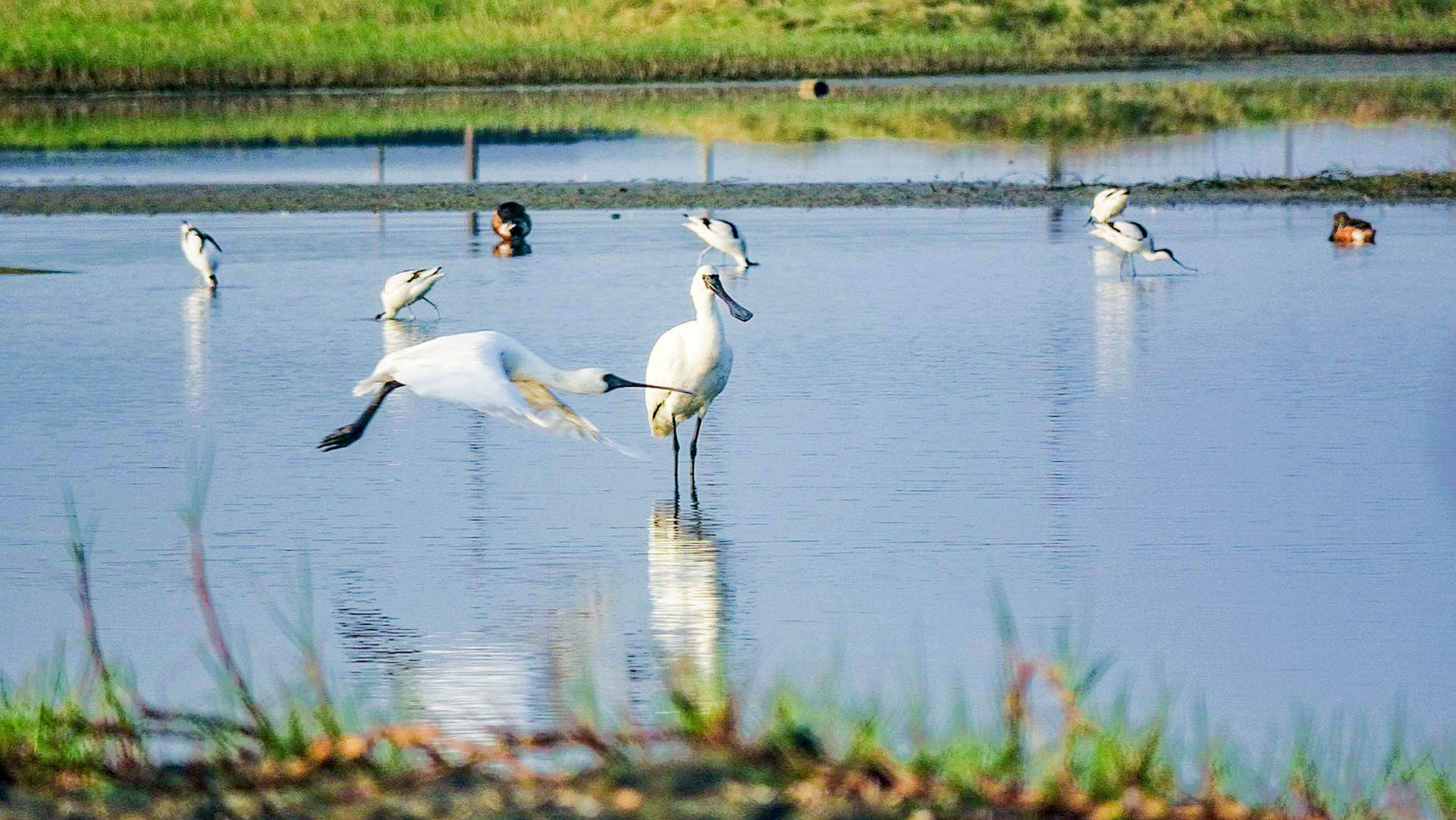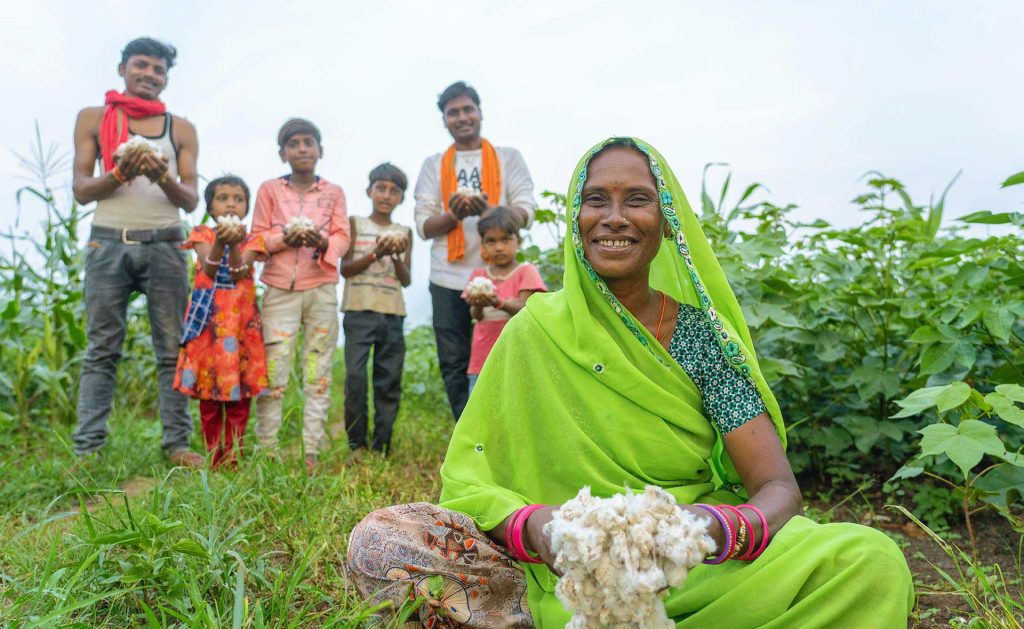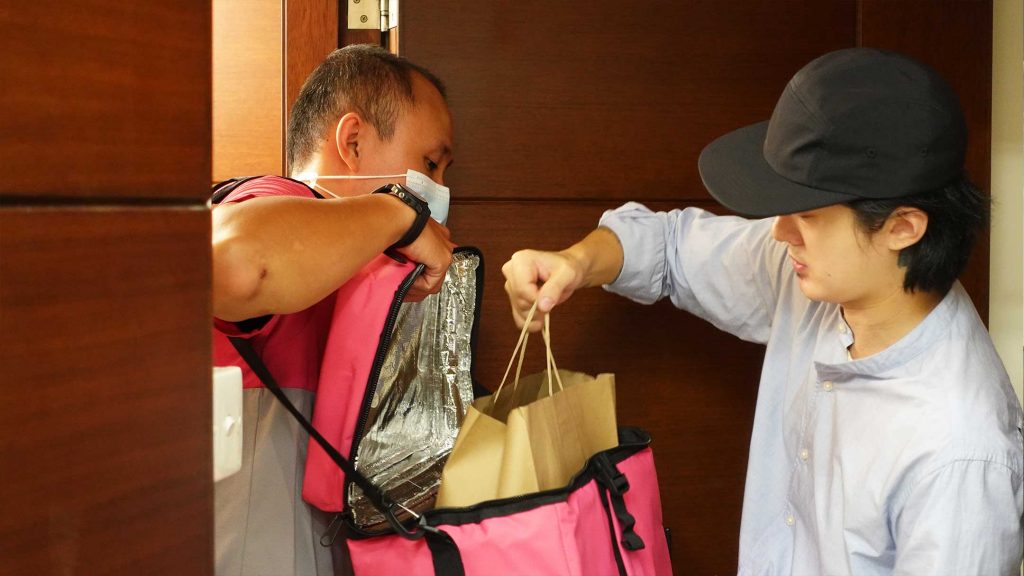
Solar Energy Takes Flight
How a solar project is helping to balance ecological needs with Taiwan’s move toward a green economy
It is dinnertime at Mingus Solar Project in Chaiyi County, Taiwan, and the diners are flocking to a popular open-air eatery.
The black-faced spoonbills are regulars here, and even a bracing breeze sweeping in from the Taiwan Strait can’t deter them as they descend upon the Budai salt plains for sustenance.
Seafood is the specialty here, and the area has long provided rich pickings for migratory wild birds like the endangered, black-faced spoonbill. Tiny fish and shrimps are the prized catches. At feeding times, the landscape comes alive with pecking beaks and flapping wings as thousands of waterbirds swoop in on the nutrient-rich morsels.
Within Chaiyi County, there are around 30 to 40 thousand waterbirds. The ecosystem in the Budai salt plains is unique in that it features both wetlands and mudflats that cater to specific species of birds.
Lin Kun-Hai, Secretary-General, Kaohsiung Wild Birds Society
It may seem hard to believe that this hub for migratory birdlife doubles as a solar power plant, currently Taiwan’s second-largest ground-mounted solar project. But a philosophy of ecological preservation has been carefully built into the Mingus Solar Project from its outset.
The question of how to balance human energy requirements with the preservation of existing natural ecosystems is one of the pressing issues of our times. Vena Energy – an independent renewable energy company that operates 57 solar and wind power assets in Asia Pacific – has devoted significant resources to maintain the habitat of the black-faced spoonbill and other native bird species at the site.

Our mindset from the get-go was to establish, strengthen, and develop strong relationships with the host communities, and continue to engage them in conversation and discussions about the project throughout the process.
Tamina Tsai, Senior Manager for Environment and Sustainability at Vena Energy
Of the original 80 hectares allotted to the project, Vena Energy has set aside about 30 percent of the area, or more than 20 hectares, for ecological conservation.
Adopting a collaborative approach, the company worked closely with local communities, universities, and NGOs to determine the foundations of the project. Vena Energy partnered with the Taiwan Wild Bird Federation to conduct an environmental survey which identified areas within the project site that were critical to the local biodiversity.
Throughout construction, external monitors ensured that the natural habitat of the migratory birds was not disturbed. Since its launch, the wild bird population has continued to thrive, with many making a permanent home within the Ecological Conservation Area.

Taiwan recently experienced its worst drought in 56 years. Despite this, record bird numbers were documented at the site during this year’s spring migration. Local conservationists cite the high quality of the project’s water management in the conservation area, contributing to an optimal habitat.
Other supporting conservation efforts include the Mingus Education Centre where educational habitat tours are conducted to raise awareness on renewable energy and local biodiversity. Visitors can also observe the wildlife via environment monitoring data on the Vena Energy website and social media.
The success of this project proves how renewable energy development can coexist with and enhance ecosystems. Indeed, its sustainability template is likely to be a marker as Taiwan moves along the road to a green economy.

Taiwan’s government has set a goal of renewable energy accounting for 20 percent of Taiwan’s overall electricity mix by 2025, and solar power represents an important part. The Ministry of Economic Affairs (MOEA) has targeted installed solar capacity of 20 GW (1 GW = 1 million KW) by then, of which 6 GW is to be installed on rooftops and 14 GW ground mounted.
This shift towards renewables is in step with current global thinking as nations seek to address the climate emergency, reduce fossil fuel dependency, and ensure energy supply security. Yet, innovation often comes with operational, financial, and regulatory challenges. To bring the Mingus Solar Project to life, DBS Taiwan helped Vena Energy with a combination of green financing and pre-emptive solutions.
For example, Vena Energy and DBS had to resolve regulatory issues related to the project size as its application exceeded the standard limits, especially since there are requirements for reserve capacity. This new regulation was yet to be applied given there were no other direct sales of that scale to private end-users in Taiwan.

The challenge was met by engaging with relevant stakeholders, including Taiwan’s Bureau of Energy, the Taiwan Institute of Economic Research (“TIER”) and experienced local counsel. By working together, the parties were able to quantify the project’s ancillary costs.
Vena Energy’s Mingus Solar Project is a long-term commitment to the environment. The project aims to supply approximately over 18,000 homes with clean and renewable energy annually. It will also save an estimated up to 91 million litres of water and over 64,000 tonnes of greenhouse gas (GHG) emissions – the equivalent of 13,870 passenger vehicle emissions – a year.

By utilizing a solutions-based, collaborative approach to help bring the project to fruition, DBS continues to help businesses forge a more sustainable future for the post-pandemic world. Having helped give wings to Mingus Solar Project, its goal is to provide a launchpad for other projects that prioritize sustainability.
“We have a major part to play in promoting sustainable development,” says Tony Luo, Head of Institutional Banking Group at DBS Taiwan. “By assuming a strong advisory role and providing clean energy-related loans, we are helping to expedite Vena Energy’s target to be the most cost-effective renewable energy developer and operator in the region.”
Partnering with Vena Energy allowed us to be part of a broader mission, which is to fuel Asia’s growth sustainably.
Tony Luo, Head of Institutional Banking Group at DBS Taiwan
Read more







